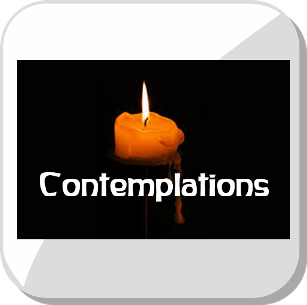|
a talk given on 12 March 2023 by Rev. Michaël Merle Passion originally meant suffering, although now it is also associated with intense outbursts of strong emotion, ardent desire, and the arousal of great enthusiasm. The term was used for centuries to refer to the week of suffering prior to the glory of Easter Resurrection. What we now call Holy Week was then known, and may still be considered as, Passion Week. The question may arise as to why we do not celebrate Lent, but rather focus on Passiontide? What is the difference? Why do we have four weeks of Passiontide and not simply one week (Holy Week) within the Lenten season? What is new in our approach that seems to extend this week-long intense time into a longer (four week) tide? In the traditional liturgical year of some Christian denominations, Passion Sunday is the fifth Sunday of Lent, marking the beginning of a two-week period called Passiontide (the week before Holy Week and Holy Week). In 1969, the Roman Catholic Church removed this two-week Passiontide from the liturgical year, but the day remains observed on the fifth Sunday of Lent in some Christian denominations such as the Anglican Communion and the Lutheran Church. This adds another dimension to our questions: If Passiontide was traditionally a two-week period within Lent, and continues to be so for some, then how did it become a four-week season in the renewed liturgical year within the Christian Community? Lent (Latin: Quadragesima, 'Fortieth', English: Lent, shortened form of the Old English word lencten, meaning ‘spring season’) is a solemn religious observance in the Christian liturgical calendar of traditional denominations that begins on Ash Wednesday and ends approximately six weeks later, the night before Easter Sunday, or in other traditions on Maundy Thursday evening with the start of the three days: Easter Tridium. The purpose of Lent is the preparation of the believer for Easter. The traditional 40 days of Lent are marked by fasting, both from foods and festivities, and by other acts of penance. The three traditional practices to be taken up with renewed vigour during Lent are prayer (justice towards God), fasting (justice towards self), and almsgiving (justice towards neighbours); these are known as the three pillars of Lent. Self-reflection, simplicity and sincerity (honesty) are emphasised during the Lenten season. In a renewed movement of Christianity, would such emphasis: the justice towards God, self and neighbour (in appropriate form) and a simple and sincere self-reflection not be a year-long reality? Lent is a response to the frivolity and excessiveness of an un-reflected life. The celebrations of Shrove Tuesday, the day before Ash Wednesday, marked by using up the butter and sugar in the house in the making of pancakes and the carnival (literally “putting away meat”) and Mardi Gras (literally “Fat Tuesday”) festivities speak to an old licentious living. As such Lent was a stark reminder, as it echoed the forty day fast in the desert when Christ entered the human experience, that we have to let go of the old ways of unrestrained expression and enter into a new way of self-management. May it be that now weshould know this to be the case at all times? Emil Bock well explains the significance of Passiontide (which in its four-week structure reminds us of the preparation that Advent is for Christmas):
Our discipline of preparation is now focused in Passiontide in the sacramental words. The human ‘I’ which in Easter resurrected joy learns to stand upright and ready to receive the Spirit at Whitsun, now is spoken of as prostrate and lamenting. We prepare in a modern way for Easter in the four weeks of Passiontide which also takes us through an ever-deepening sense of our full preparation: physical, etheric, astral and ego. As Emil Bock describes:
0 Comments
|
Article Archives
December 2023
2022 - January to December
2021 - January to December 2020 - January to December 2019 - January to December 2018 - January to December 2017 - January to December 2016 - January to December 2015 - January to December 2014 - November & December 2013 - July to December 2013 - January to June 2012 - April to December Send us your photos of community events.
Articles (prefaced by month number)
All
|




 RSS Feed
RSS Feed